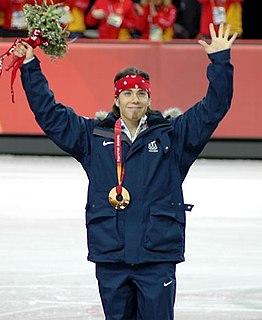A Quote by Irene Nemirovsky
music alone can abolish differences of language or culture between two people and evoke something indestructible within them.
Quote Topics
Related Quotes
There are very real differences between science fiction and realistic fiction, between horror and fantasy, between romance and mystery. Differences in writing them, in reading them, in criticizing them. Vive les différences! They're what gives each genre its singular flavor and savor, its particular interest for the reader - and the writer.
Music is a language and different people who come along are each using that language to do something different, but all coming at it in a similar vein inasmuch as it's always community based and for the most part nonprofit. Most bands don't ever come within a mile of profit - clearly these people are not playing music to make money.
There's going to be biological differences between the genders. There's going to be biological differences between two women or two men. There's biological differences between all of us. My concern is, why are we so concerned about it? Why are we so worried about it? Why, whenever a study comes out about men do this one way and women do this one way, or men's brains and women's brains - why are we so interested in that? You know, what makes us so fascinated by differences between the sexes? And I think more often than not that interest is deeply embedded in sexism.
Music is a universal language insofar as you don't need to know anything else about a musician that you are playing with other than that they can play music. It doesn't matter what their music is, you can find something that you can play together, with what their culture is. The dialect part of it comes into play, but nothing like the differentiation that language sets up, for example.
I want to break into the acting industry. It's something I have a great deal of respect for; it's a passion of mine. It's so amazing, the differences between acting and being an athlete, but the one commonality is they both evoke emotion in the viewer. And those emotions are real. So I think that's pretty cool.
I feel a disparity between my life in India within the home and my life outside the home - my life within public and private space. In terms of here and there, there were some differences, but New York and India were very different when I was growing up in the '80s. Definitely in terms of the visual and popular culture I encountered within my home - that was very different from the complete lack of representation I saw of South Asian culture outside of that space.
The language of the culture also reflects the stories of the culture. One word or simple phrasal labels often describe the story adequately enough in what we have termed culturally common stories. To some extent, the stories of a culture are observable by inspecting the vocabulary of that culture. Often entire stories are embodied in one very culture-specific word. The story words unique to a culture reveal cultural differences.





































